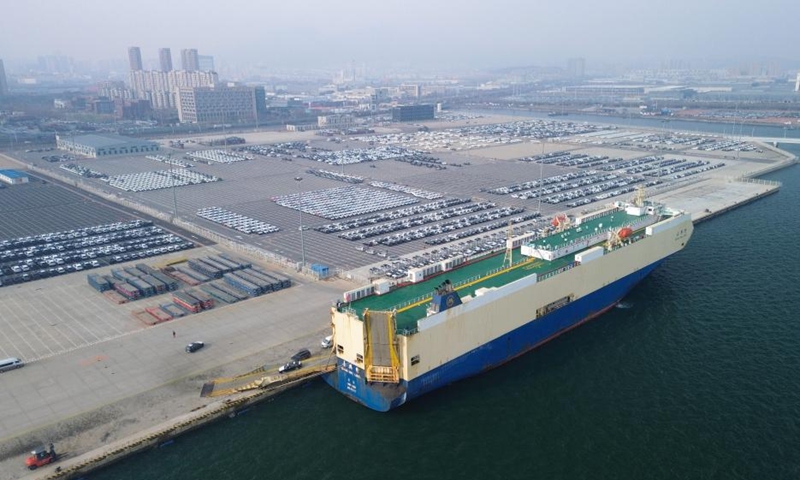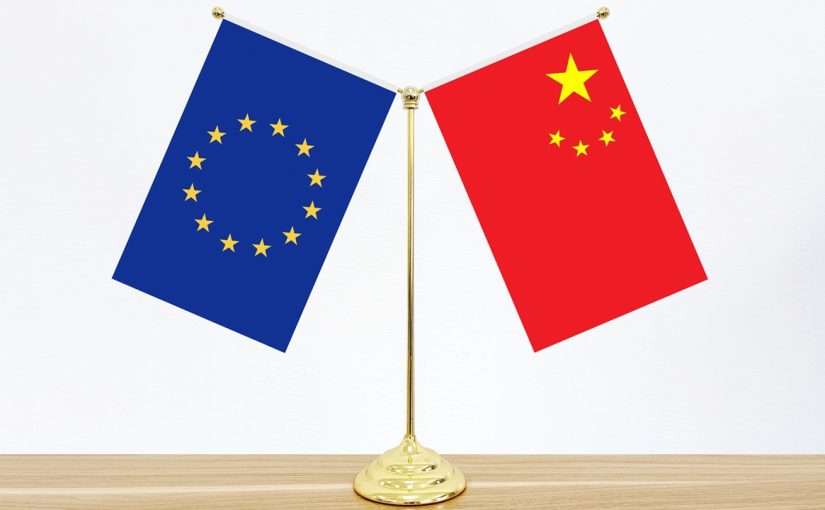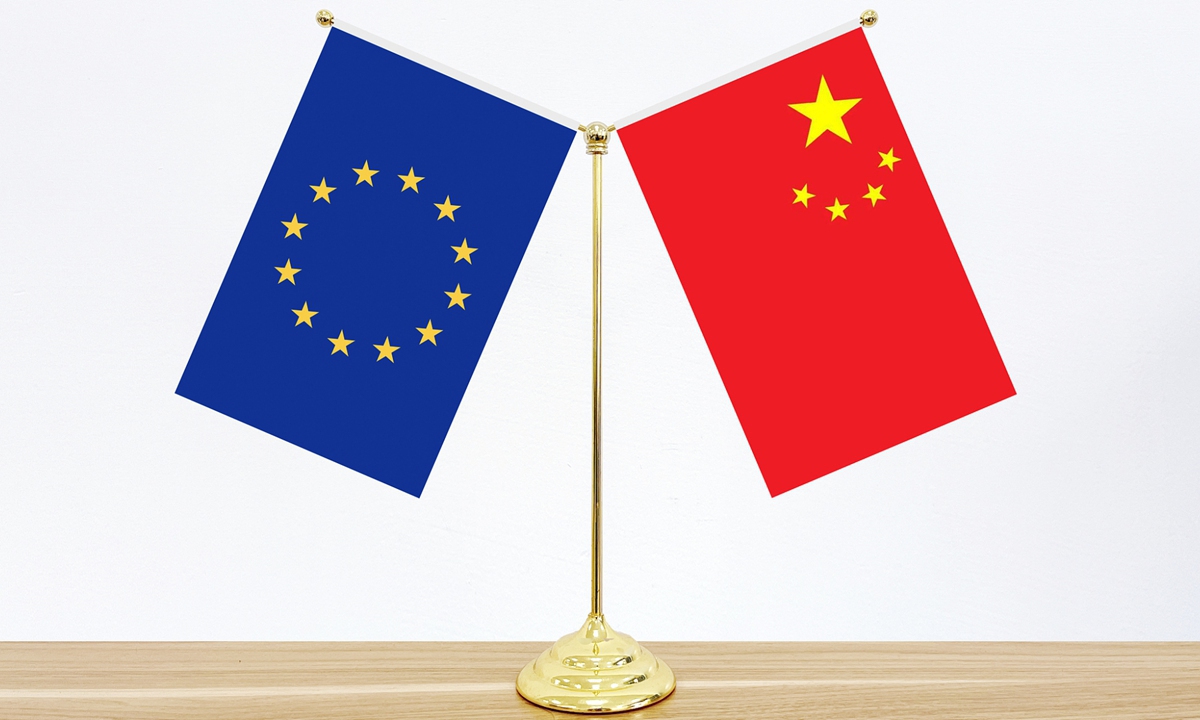
An aerial drone photo taken on Jan. 16, 2024 shows vehicles at a terminal of Dalian Port, northeast China’s Liaoning Province. Dalian Port achieved a record-breaking annual export of 102,773 vehicles in 2023, marking a year-on-year growth of 143 percent, according to the Dalian Customs. Photo: Xinhua
After senior officials from the Netherlands and France visited China, other European leaders are following suit, which analysts said is aimed at seeking cooperation expansion with China amid the EU’s internal economic problems and decreasing bilateral trade with one of its most important trade partners.
China’s foreign trade with the EU stood at 1.27 trillion yuan ($176 billion) in the first quarter of 2024, down 3.5 percent year-on-year, at a time when China’s total imports and exports grew 5 percent, the fastest pace in six quarters, to hit a record of more than 10 trillion yuan, according to statistics released by the General Administration of Customs of China on Friday.
China was the largest partner for EU imports of goods – accounting for 20.5 percent – and the third largest partner for EU exports of goods in 2023, data from the EU’s statistical office showed.
Analysts noted that European countries are seeking to expand cooperation with China, especially in high-end manufacturing, and maintain pragmatic economic and trade cooperation in general, at a time when most EU member states are facing weak economic growth, insufficient impetus for technological innovation and the spillover effects of the Russia-Ukraine conflict.
According to a survey by the European Central Bank (ECB) of the bloc’s biggest firms released on Friday, the eurozone economy is making a timid and incomplete recovery, driven by higher spending, but is being held back by sluggish investment and labor demand.
Another ECB survey also released on Friday forecast GDP growth of just 0.5 percent for 2024, after the EU’s economy had already stagnated for about a year and a half. Compared with the previous survey in the fourth quarter of 2023, the figure represents a small downward and upward revision of 0.1 percentage points for 2024, read the ECB survey.
The EU is currently under big pressure. European leaders’ visits and planned visits to China are aimed at bringing about more engagement and promoting its economic development through economic and trade cooperation with China, Hu Qimu, a deputy secretary-general of the digital-real economies integration Forum 50, told the Global Times on Friday.
“If the EU only engages in geopolitics, it will actually pay for the US in the end. As a result, the EU’s own economy is in ruins, and so is the well-being of its people,” said Hu.
At the invitation of Chinese Premier Li Qiang, German Chancellor Olaf Scholz will pay an official visit to China from Sunday to April 16, the Chinese Foreign Ministry announced on Friday.
Italian Prime Minister Giorgia Meloni will travel to China in the coming months, Bloomberg reported on Friday, citing a person familiar with the plans.
On Thursday, Chinese Minister of Commerce Wang Wentao met Italy’s Deputy Prime Minister and Minister of Foreign Affairs Antonio Tajani in Verona, Italy. Wang vowed to further cultivate China-Italy relations, and hopes Italy will play a role in calling on the EU to take a rational and open-minded attitude to new energy cooperation with China.
Dutch Prime Minister Mark Rutte paid a working visit to China from March 26 to 27, at a time when the Netherlands’ chip export policy was in the spotlight.
Despite internal economic problems, the EU is also facing outside pressure, analysts pointed out.
Due to pressure from the US, some European countries eventually yielded to the superpower, which damaged their bilateral economic and trade cooperation with China, Zhao Junjie, a research fellow at the Institute of European Studies of the Chinese Academy of Social Sciences, told the Global Times.
Analysts also criticized the US for using long-arm jurisdiction to force its allies to become foot soldiers in its containment and “decoupling” strategy against China.


